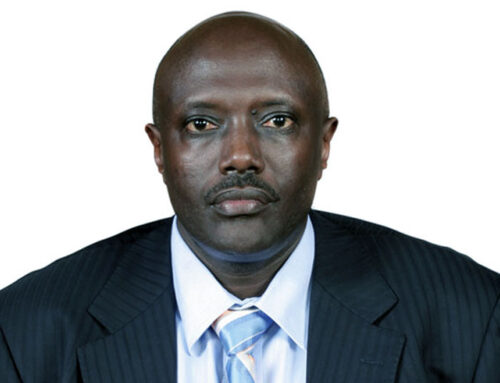
Hon. Abraham Byandala, Uganda’s Minister of Works and Transport since May 2011, has almost 40 years of experience in the road-transport sector. He formerly served as City Engineer and Surveyor of Kampala and headed the government’s Committee on Physical Infrastructure. He discusses his goals for Uganda’s infrastructure development.
European Times: What are your top priorities as Minister of Works and Transport?
Abraham Byandala: My appointment as minister can be explained by the technical knowledge I hold in this sector, as this is my area of expertise. My first duty as minister is all about service delivery. I aim to pinpoint any barriers to efficient service delivery in Uganda’s transport and public-works activities, and find solutions for any problems.
European Times: What are your plans for developing the road network?
Abraham Byandala: Sound transport infrastructure is critical for Uganda in its drive to achieve strong, private-sector-led growth that contributes to economic development and poverty reduction. Upgrading the road network is our biggest challenge. Uganda has several road projects underway, including starting work on the Kampala-Entebbe, Kampala-Mpigi and Kampala-Jinja roads as well as completing the Northern Bypass and designing the Southern Bypass. In June this year, President Museveni announced that the government will increase its investment in road projects, and that this funding will be used to pave close to 40 roads totalling thousands of kilometres all over the country. Controlling axel loads is a major issue. We are working closely with the other East African Community states to deal with this major problem together, because if we do not, our investment in roads will be wasted. Roads are designed to take a particular axel load, and if overloaded they will crumble in no time. We are also investing more in road safety than previous governments have done, and we are trying to set up a National Road Safety Agency.
European Times: What progress is being made on the Greater Kampala development plan?
Abraham Byandala: The Ministry of Works and Transport, together with the Kampala Capital City Authority, are moving forward on this ambitious initiative. We have already pegged costs on what we are going to do concerning Kampala’s roads and the Greater Kampala Metropolitan Area railway and Rapid Bus Transport. We are getting help from development partners, including Japan and the World Bank.
European Times: What are some new developments in the construction sector?
Abraham Byandala: When I was chairman of the government’s Committee on Physical Infrastructure, we came up with a plan to set up a national construction company. We are borrowing a leaf from China, where the government owns a construction unit. This national construction company will serve to build capacity and reduce prices. It will bid like other contractors.
We have a project by Cross-Roads which is assisting local contractors with financial and management skills; availability of funds and performance guarantees. We are also about to establish a Uganda Construction Industry Commission, which will help develop the local construction industry.
European Times: What is the importance of the planned new port at Bukasa?
Abraham Byandala: The ministry has begun a feasibility study for a new port at Bukasa, near Lake Victoria. The new port will be served by a proposed railway line from Tanga, Tanzania to Kampala via Musoma Port on Lake Victoria. The Bukasa port, to be Uganda’s third after Jinja Pier and Port Bell at Luzira, will serve as a new international gateway for Ugandan trade through the Indian Ocean. We are also upgrading Jinja Pier and Port Bell and will begin the construction of a new bridge at Jinja, across the Nile, in December next year. The new bridge will improve transport on the Northern Corridor which links Uganda and its neighbours Burundi, Rwanda, South Sudan and the eastern Democratic Republic of Congo to Kenya. It will also boost tourism because of its location near the source of the Nile.
European Times: What image of Uganda would you like to communicate to potential investors and business partners?
Abraham Byandala: Many around the world are not aware that Uganda’s years of political instability ended long ago. I would like international investors and partners to know that Uganda is now a great and safe place to do business, and that the government and private sector have a very productive working relationship here. Uganda has one of the fastest-growing economies in the world, and with the discovery of oil, there are now even more opportunities for investors. Uganda is a virgin market.
European Times: How do you think Uganda will develop over the next five years?
Abraham Byandala: Five years from now, as more foreign investors learn about our very positive business climate, I believe that Uganda will be one of the most prosperous and sought-after destinations in the region, especially given our discovery of oil. With peace in the country, increased energy production and an educated population, Uganda will develop very fast.
European Times: What is your personal message to international investors?
Abraham Byandala: Come to Uganda! It is a wonderful place to do business, the climate is fantastic, and the Ugandan people are very warm and welcoming.




